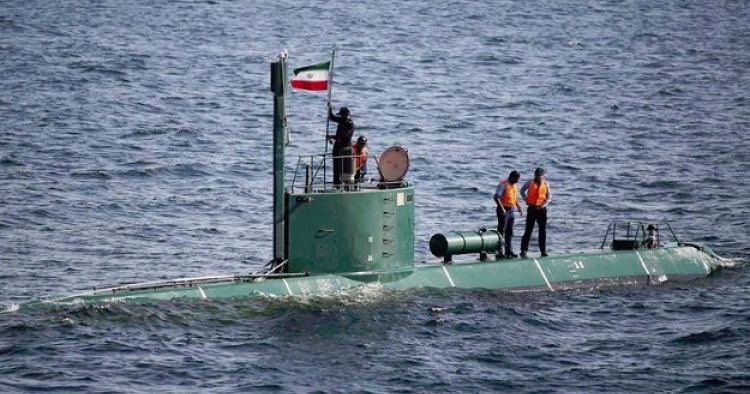U.S. Navy commanders have expressed the concern that Iranian naval forces are disrupting international navigation by “harassing” warships passing through the strategic Strait of Hormuz, Reuters reported on Wednesday. The U.S. commanders warned that such incidents in future could result in miscalculation and trigger an armed confrontation. According to the U.S. Navy officials, the George H.W. Bush – a U.S. aircraft carrier – confronted a number of Iranian Navy fast-attack boats approaching a U.S.-led, five-vessel flotilla as it entered the Strait on Tuesday. The incident reportedly prompted the U.S. warship to send helicopter gunships to deter Iranians speedboats, some of which had reached as close as half a mile away from the aircraft carrier.
"What I don't like about that is they (Iranian boats) were in the middle of international transit waters (while) we had a right to be there as we were exercising freedom of navigation on our way into the Arabian Gulf," Rear Admiral Kenneth Whitesell, commander of the Carrier Strike Group 2, told journalists aboard the aircraft carrier. "They also had weapons uncovered as some of the cameras were able to tell. They had some of the weapons manned. We also have aerial data that they were arming all of these weapons."
Comment: The incident is the latest act of provocation by the Iranian naval forces in the Persian Gulf region. On March 9, Centcom commander Gen. Joseph Votel told the U.S. Congress that Islamic Revolution Guards Corps (I.R.G.C.)’s naval forces have increased their “unprofessional, unsafe and abnormal” maritime activities and regularly harass U.S. ships in the Gulf region. "We have to hold Iran accountable,” he urged. His comment came just days after the I.R.G.C. had sent fast-attack boats close to the U.S.N.S. Invincible in the Strait of Hormuz, forcing the U.S. warship to change course. Last year, the U.S. Navy had a total of 35 encounters with the Iranian naval forces. The most high-profile incident occurred in January 2016 when Iran briefly detained 10 U.S. sailors in the Gulf.
The Middle East Institute (MEI) is an independent, non-partisan, non-for-profit, educational organization. It does not engage in advocacy and its scholars’ opinions are their own. MEI welcomes financial donations, but retains sole editorial control over its work and its publications reflect only the authors’ views. For a listing of MEI donors, please click here.













